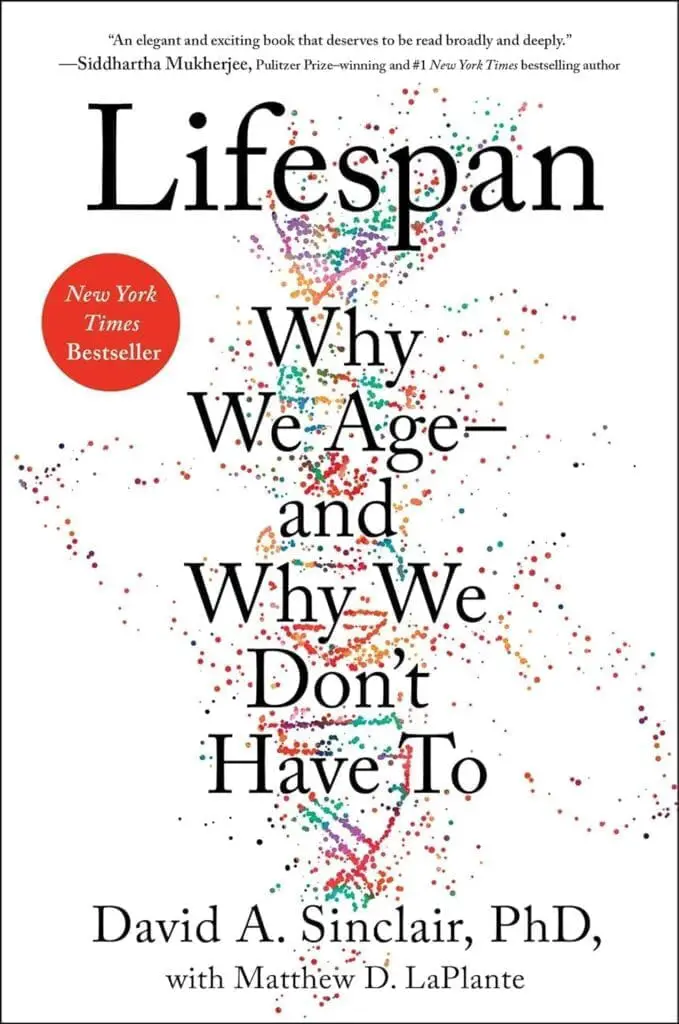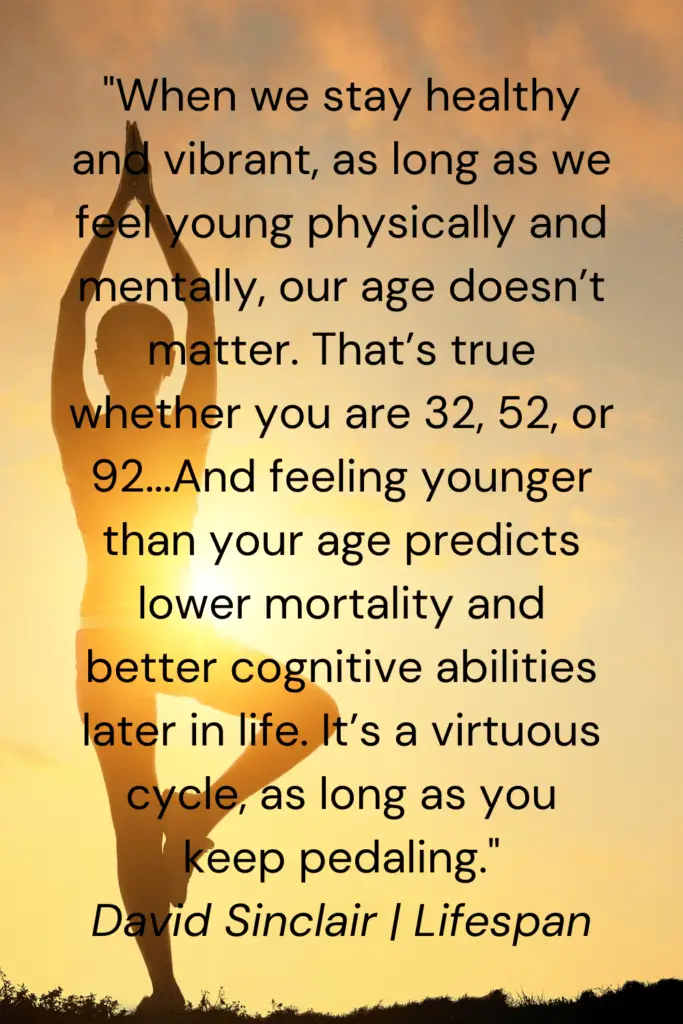Top 11 David Sinclair Lifespan Quotes

This post may contain affiliate links. If you click them, I could earn a small commission at no cost to you. Thank you!
1. “Science has since demonstrated that the positive health effects attainable from an antioxidant-rich diet are more likely caused by stimulating the body’s natural defenses against aging, including boosting the production of the body’s enzymes that eliminate free radicals, not as a result of the antioxidant activity itself.” Chapter 1. ‘Viva Primordium’ > Page 15
2. “Yet I believe that such an answer exists—a cause of aging that exists upstream of all the hallmarks. Yes, a singular reason why we age. Aging, quite simply, is a loss of information.” Chapter 1. ‘Viva Primordium’ > Page 20
3. “Today, analog information is more commonly referred to as the epigenome, meaning traits that are heritable that aren’t transmitted by genetic means.” Chapter 1. ‘Viva Primordium’ > Page 21
4. “If the genome were a computer, the epigenome would be the software. It instructs the newly divided cells on what type of cells they should be and what they should remain, sometimes for decades, as in the case of individual brain neurons and certain immune cells.” Chapter 1. ‘Viva Primordium’ > Page 21
5. “The longevity genes I work on are called “sirtuins,” named after the yeast SIR2 gene, the first one to be discovered. There are seven sirtuins in mammals, SIRT1 to SIRT7, and they are made by almost every cell in the body.” Chapter 1. ‘Viva Primordium’ > Page 24
6. “They have also evolved to require a molecule called nicotinamide adenine dinucleotide, or NAD. As we will see later, the loss of NAD as we age, and the resulting decline in sirtuin activity, is thought to be a primary reason our bodies develop diseases when we are old but not when we are young.” Chapter 1. ‘Viva Primordium’ > Page 24
7. “The other pathway is a metabolic control enzyme known as AMPK, which evolved to respond to low energy levels. It has also been highly conserved among species and, as with sirtuins and TOR, we have learned a lot about how to control it.” Chapter 1. ‘Viva Primordium’ > Page 26
8. “Here’s the important point: there are plenty of stressors that will activate longevity genes without damaging the cell, including certain types of exercise, intermittent fasting, low-protein diets, and exposure to hot and cold temperatures (I discuss this in chapter 4). That’s called hormesis.” Chapter 1. ‘Viva Primordium’ > Page 26
9. “Youth → broken DNA → genome instability → disruption of DNA packaging and gene regulation (the epigenome) → loss of cell identity → cellular senescence → disease → death.” Chapter 2. The Demented Pianist > Page 41

10. “When we stay healthy and vibrant, as long as we feel young physically and mentally, our age doesn’t matter. That’s true whether you are 32, 52, or 92. Most middle-aged and older adults in the United States report feeling ten to twenty years younger than their age, because they still feel healthy. And feeling younger than your age predicts lower mortality and better cognitive abilities later in life. It’s a virtuous cycle, as long as you keep pedaling.” Chapter 3. The Blind Epidemic > Page 83
11. “Because as it turns out, exposing your body to less-than-comfortable temperatures is another very effective way to turn on your longevity genes.” Chapter 4. Longevity Now > Page 106
Related Posts: